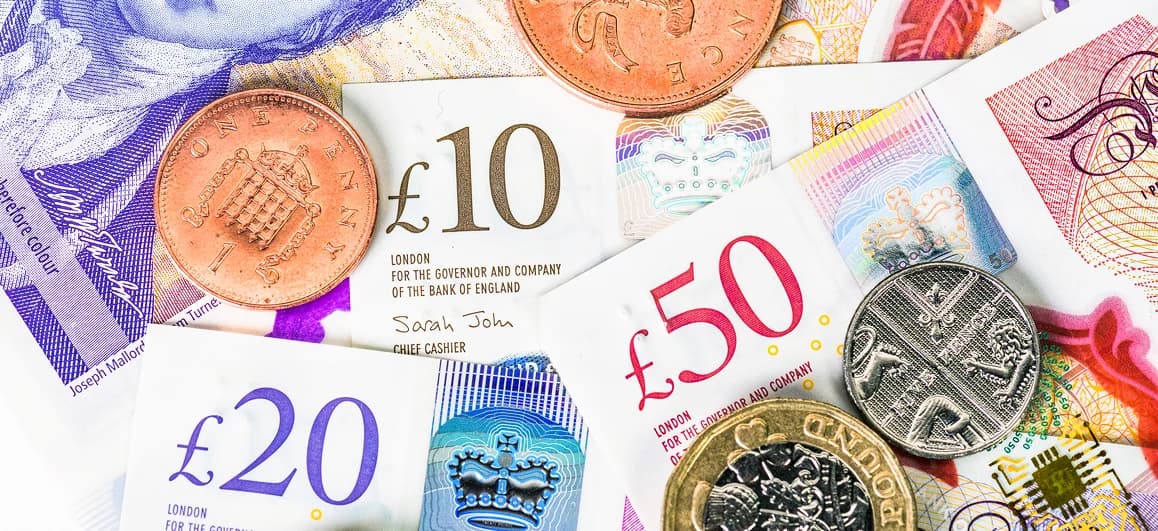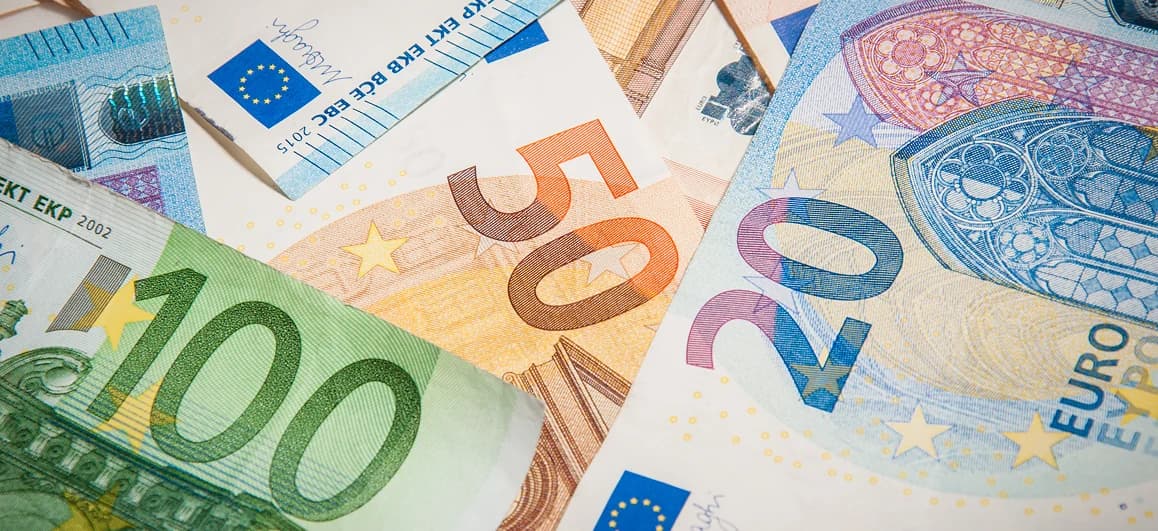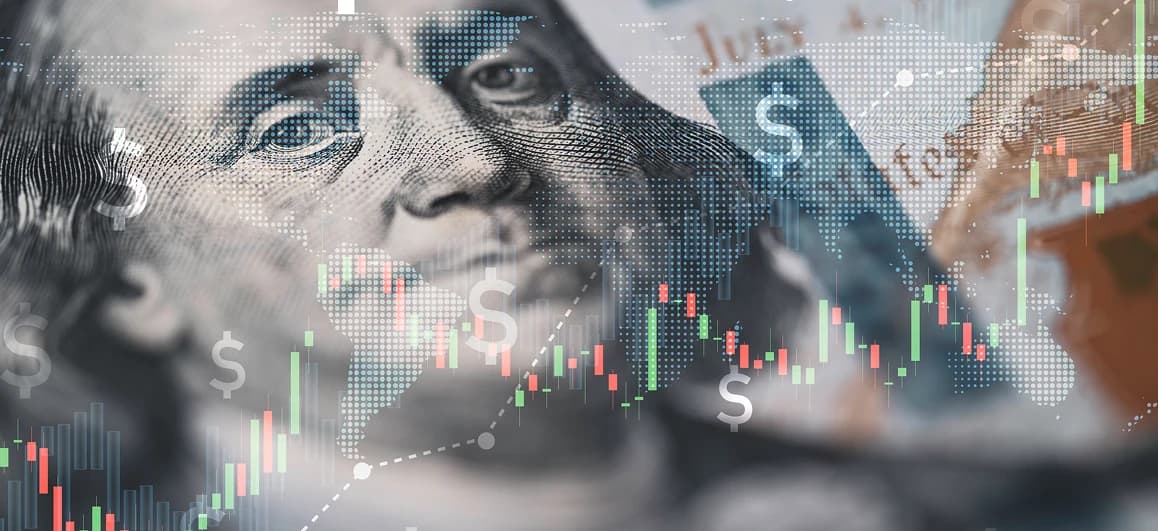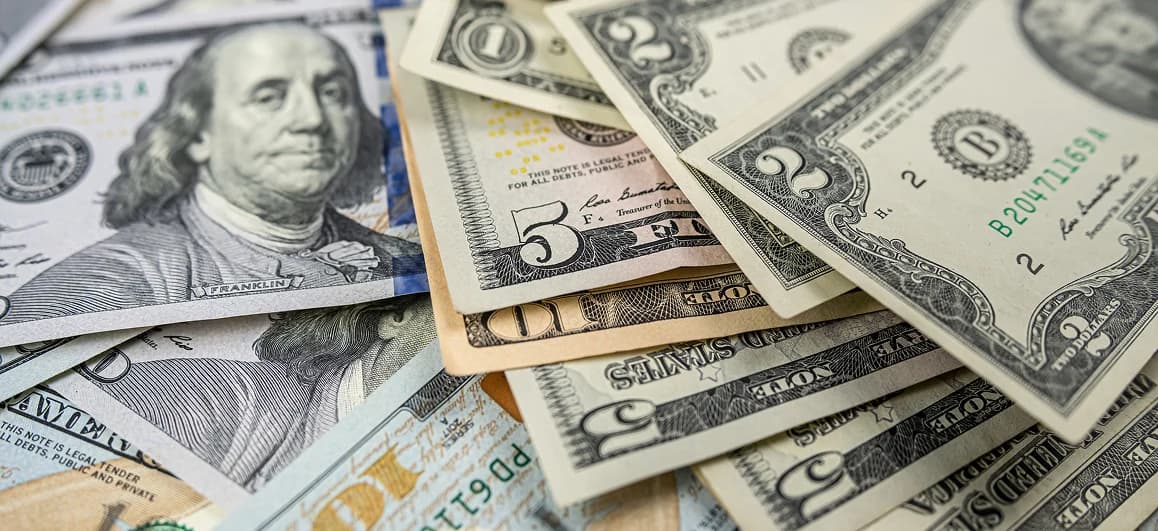- Home
- Blog
- Personal Finance
- The 6 best online banks in the US (with rates, fees, and more!)

The 6 best online banks in the US (with rates, fees, and more!)
Going digital? Learn about the best online banks in the US, their pros and cons, rates, fees, whether they’re safe, and how they're different from conventional banks.
9 novembre 2020 — 12 min read
Thanks to the growing demand for personalized banking services and real-time interaction in the United States, online banking or digital banking has now become the star of the banking industry.
With the user-friendly mobile apps and tools that online banks provide, managing your finances have got a lot easier than with traditional banks, especially in the COVID-19 era.
But how do you go about it? Like, how do you open an account with an American digital banking platform? And how do you know if the online bank’s safe (or not)?
Whether you just want to open an online savings account or you’re looking for a digital bank in the US that’ll meet all your needs, we’ve got your back. Watch out for our list (further below) of the best online banks in the US, along with their banking products, rates, and deposit security measures.
What’s an online bank?
Online banks (also known as neobanks or digital banks) operate without any physical, brick-and-mortar branches. Instead, they let you manage your bank accounts via the Internet with a mobile phone, computer, or tablet. This includes paying bills electronically, transferring money, and depositing checks.
On top of that, a major perk of digital banks is that they offer better interest rates or annual percentage yields (APYs) than brick-and-mortar banks do, and they charge lower fees as well.
Some online banks do have branches, though, but they identify themselves as digital banks because they primarily carry out a massive amount of their business online.
How does an online bank differ from a traditional bank in the US?
Operation
American traditional banks function mainly via their brick-and-mortar branches. Even though most of them may let you access your bank accounts online, digital banks primarily provide access via the Internet.
Interest rates
Online banks offer higher interest rates for savings and checking accounts than traditional banks do.
As of November 2020, the national average APY is 0.05% on savings accounts and 0.04% on checking accounts, according to FDIC’s national rate cap info.
Compare these rates with the rates offered by the best online banks in the US (around 0.50%-1%) - you can make out the difference.
Fees
Since most online banks don’t have to spend on branch maintenance, they may charge low fees, or better still, no fees at all.
For example, Capital One, Discover Bank, and Schwab Bank have no monthly fees. Some of the best online banks in the US don’t charge overdraft fees, either.
On the other hand, some large traditional banks may charge hefty fees, though they may waive them if you meet certain requirements.
For instance, Chase Bank charges a $5 USD monthly fee for saving accounts, but may waive this fee if you have $300 USD minimum daily balance, or you’re under 18, or you meet other criteria as stated. For checking accounts, Chase Bank charges a $12 USD monthly fee for balances under $1,500 USD.
Ready to find out about the 6 best online banks the US has? Here you go!
What are the best online banks in the US?
Ally Bank
Alliant Credit Union
Charles Schwab Bank
Discover Bank
Capital One
Chime
1. Ally Bank
With Ally Bank, you can open interest-bearing checking accounts, online savings accounts, money market accounts, Certificates of Deposit (CDs), or Individual Retirement Accounts (IRAs).
Ally also lets you invest and potentially grow your money through bonds, options, Exchange-Traded Funds (ETFs), and mutual funds. Furthermore, you can make unlimited ATM withdrawals with Ally’s money market accounts.
To deposit money in your Ally Bank account, you need to set up direct deposit, mobile check deposit, or wire transfer, or you can send a check by mail.
If you’ve got any questions, it’s easy to contact Ally’s help center by phone, chat, email, or even snail mail.
APY*: 0.60% on all balance tiers in online savings, 0.50% on all balance tiers in money market accounts, and 0.20%-1% on High Yield CDs; on interest checking accounts, 0.10% for under $15,000 USD daily balance, and 0.25% for $15,000 USD minimum daily balance.
Fees*: No monthly fees for savings accounts, and no maintenance fees for CDs; $10 USD for excessive transactions, and $25 USD overdraft fee.
Best for: Robust customer service.
What you'll like: Nationwide ATM network at 43,000 locations.
What you won't: No way to deposit cash.
2. Alliant Credit Union
An online credit union backed by the National Credit Union Administration (NCUA), Alliant has plenty of accounts geared toward minors (under 18 years of age). On such an account, a parent, grandparent, or guardian must be a joint owner, along with the child/teen. The adult can monitor account activity until the minor reaches age 18.
There are different minimum deposit requirements, based on the type of account you open.
For example, if you wish to open a Kids Savings Account (for children 12 and younger), Alliant will pay a $5 USD minimum deposit on your behalf. For those between ages 13 and 17, the Teen Checking Account is available without any minimum balance requirements.
However, you can open an account with Alliant, only if you satisfy any one of the following criteria:
You’re a member of an Alliant-related organization or association
You’re related to an Alliant member
You live or work in a community in the Chicago area
You work at a participating company, like Palm Healthcare Management LLC or Alloya Corporate Federal Credit Union.
If none of the above requirements applies to you, you can still become eligible for Alliant’s membership by being a member of Foster Care to Success (FC2S).
FC2S is Alliant’s partner charity, serving thousands of foster teens throughout the US. It is easy to become a member and Alliant will pay the $5 USD membership fee to FC2S in your name.
APY*: 0.25% on all checking accounts and 0.55% for $100 USD minimum average daily balance in all tiers of online savings accounts.
Fees*: $1 USD for Paper Account Statement in online savings accounts, and $25 USD for each Non-Sufficient Fund (NSF) item in the case of checking accounts (plus $28 USD courtesy pay fee for High-Interest checking accounts).
Best for: Students and teens who want to manage their personal finances.
What you'll like: Massive ATM accessibility at 80,000 locations across the US.
What you won't: Joining a separate organization for membership eligibility, in case you don’t meet the other eligibility criteria.
3. Charles Schwab Bank
You might’ve heard of the Charles Schwab Corporation as an investing platform, but it functions as a bank, too. Based in San Francisco, California, Schwab Bank offers online savings accounts, checking accounts, retirement accounts, and home loans.
You can’t deposit cash directly in your account, though; you’ll have to convert the cash into a money order or a check, and send it in via mail or mobile check deposit instead.
The bank provides 24/7 customer support through live chat, phone, and Twitter. Plus, whether you’re in the US or you’re traveling out of the country, Schwab Bank refunds unlimited ATM fees (as of November 9, 2020) in case you withdraw cash using your Schwab Bank Visa Platinum Debit Card.
APY*: 0.03% on checking accounts and 0.05% on savings accounts.
Fees*: No fees.
Best for: Frequent travelers, due to the unlimited ATM fee rebates worldwide.
What you'll like: No minimum balance requirements on online savings or checking accounts.
What you won't: Must open a Schwab Brokerage account for using the checking account.
4. Discover Bank
Another of the best online banks in the US is Discover Bank. Like Ally, Discover offers savings, checking, CD, money market accounts, and more.
You don’t need to deposit a minimum balance in your savings or checking account, but with CDs and money market accounts, the minimum deposit requirement is $2,500 USD.
You can reach out to the online bank for help through mail and social media.
APY: 0.55% on online savings accounts and IRA savings accounts, and 0.60%-0.70% on CDs; on money market accounts, 0.40% for balances under $100,000 USD, and 0.45% for balances over $100,000 USD.
Fees: No monthly fees.
Best for: 24/7 customer service.
What you'll like: Access to 60,000 ATMs across the US.
What you won't: Minimum balance requirement of $2,500 USD on money market and CDs.
5. Capital One
In 2012, Capital One took over ING Direct, one of the 1st online-only banks in the US. Initially rebranded as Capital One 360, the bank offers a full suite of online banking products, including checking accounts and savings accounts.
They’re not an online-only bank, though, since they’ve got branches in about 10 states; but they conduct most of their business online.
Your money deposit options include direct deposit, bank transfer, and the Capital One mobile app (for mobile check deposit). You can even view free credit scores and temporarily lock your debit card.
If you’re a parent, you can also open Capital One bank accounts for minors and oversee those accounts till your child reaches the age of 18.
The bank lets you contact them by phone, live chat, Twitter, or Capital One Cafés (in select states, if you feel like socializing over a cup of coffee while managing your bank account).
APY*: 0.50% on 360 Performance savings accounts and IRA online savings, 0.10% on online checking accounts, 0.40% on Kids Savings Accounts, and 0.20%-0.40% on online CDs.
Fees*: No monthly fees, except a $35 USD overdraft fee.
Best for: Access to more than 40,000 Capital One as well as Allpoint ATMs.
What you'll like: No minimum balance requirements.
What you won't: No ATM card or debit card for Capital One 360 savings accounts online.
6. Chime
A leading neobank in the US, Chime was founded in 2013. It’s a digital-only bank based in San Francisco, California, that not only offers checking and savings accounts, but also includes perks like daily balance notifications, instant transaction alerts (every time you spend money using your Chime debit card), and direct deposit.
However, before applying for a Chime savings account, you need to open an online spending or checking account with the bank.
What’s more, when it comes to depositing cash, you’ll have to visit a Green Dot cash deposit location.
If you’ve got any queries, though, it’s easy to reach out to Chime by email, phone, mail, and social media (Facebook, Instagram, and Twitter).
Chime also provides 128-bit AES encryption to ensure your money’s safe. And in case your card goes missing, you can block it immediately.
APY: 1% on online savings accounts.
Fees: No fees for savings or spending accounts, except for out-of-network cash withdrawal fees.
Best for: Access control and security measures.
What you'll like: Access cash at over 38,000 Visa Plus Alliance and MoneyPass ATMs throughout the US.
What you won't: Must open a checking or spending account for opening a savings account.
* Note: The APY or rates stated above are as of November 2020 and may change without notice by each operator at any time.
How to open an online bank account in the United States
Let’s get down to basics - how do you open an account with a bank online in the US? This way, please:
Select the type of online account you wish to open, whether savings, checking, retirement, or any other.
Enter your personal info, like a valid home address and your Social Security Number (SSN), or Taxpayer Identification Number (TIN) if you are not a US citizen.
Confirm your US citizenship or residency and that you’re 18+.
Make a minimum deposit in the account you want to open, if your bank requires it (not all will).
Wait for the bank to accept your application, and you’re good to go! A couple of such banks may also send you a debit card in the mail to the address you’ve provided.
How do I access money in an online bank account in the United States?
At some of the best online banks in the US, you can use checking accounts for paying your bills online or writing checks.
Others may provide debit or credit cards you can use to make purchases or withdraw cash from your online account.
Most online banks also let you set up an electronic link to an external account, which may be your checking account at a credit union or a brick-and-mortar bank. You can use this link to transfer money into and out of your online bank whenever you want.
Is it safe to use online banks in the United States?
The best online banks in the US with standard security measures are just as safe and trustworthy as traditional banks are, so take it easy. You can always take some extra precautions, though, to bank online safely:
Before opening an online bank account, make sure the money is insured by the Federal Deposit Insurance Corporation (FDIC). A federally insured online bank account will protect your money against bank failures up to $250,000 USD per account.
Check whether the bank’s got features like fraud monitoring and encryption.
Keep your anti-virus software up-to-date.
Avoid public Wi-Fi networks when using your online bank account.
Are online banks FDIC insured?
Yes and no. Online banks in the US are usually backed by FDIC, but you can’t say the same for all of them. A few of these banks are actually cash management accounts falling under various protections.
For American online credit unions, there’s a separate agency to insure their deposits, named the “National Credit Union Administration” (NCUA).
Both the FDIC and the NCUA insure money in online bank and credit union accounts for the same amount (up to $250,000 USD).
Keep in mind, though, that all online banks and credit unions in the US aren’t federally insured, but the best online banks in the US that we’ve stated above are.
How do I know if an online bank is legitimate in the USA?
Well, there are some telltale signs you need to look out for, before choosing one of the US’s top digital banks:
Does the online bank’s web address start with “https:”? Or, is there a lock icon next to the website’s URL?
Do they have a physical address, along with multiple contact phone numbers?
Have they got FDIC or NCUA logos or links (that work) on their website?
If the bank claims to be NCUA or FDIC-insured, have you verified this fact using
or NCUA’s official website?
How long has the online bank been operating in the US?
If you’ve answered “yes” to the first 4 questions above, and the digital bank’s been in business in the US for at least 7-10 years now, you’ll know that bank is legit.
Overall?
American online banks can offer nearly all the banking services you’re likely to need, at higher rates and lower fees than traditional banks.
Once you’ve set up an account at one of the best online banks in the US, you can use Xe to make effortless international money transfers to and from the country. To get started with Xe, sign up or log in straightaway.
Related Posts

24 aprile 2025 — 6 min read

24 aprile 2025 — 5 min read

22 aprile 2025 — 3 min read

22 aprile 2025 — 5 min read

23 dicembre 2024 — 11 min read

13 novembre 2024 — 3 min read